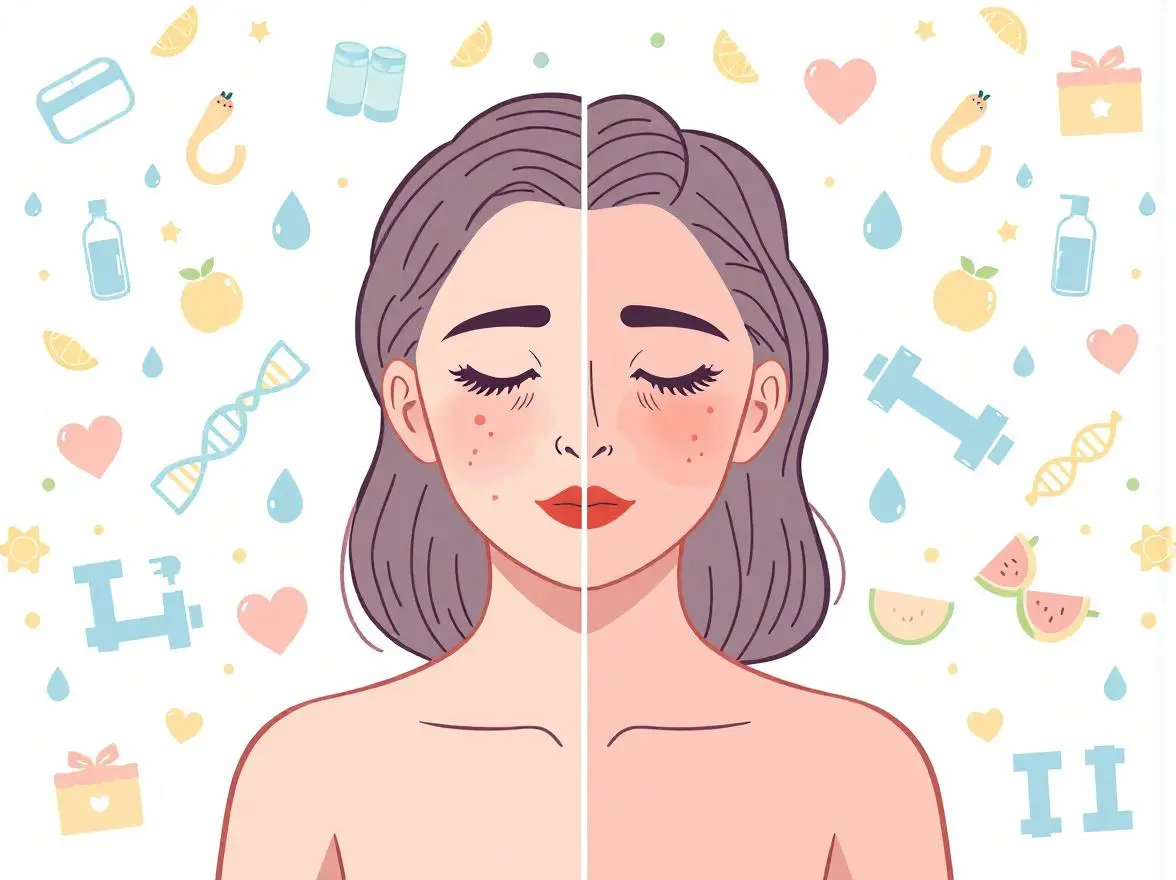Imagine your skin as a mirror reflecting your overall health. When it comes to obesity, the impact on skin health goes beyond just the number on the scale. Let’s dive into how obesity can affect your skin and what you can do to keep it healthy and glowing.
Effects of Obesity on Skin Health
Hey there! Did you know that carrying extra weight can have a major impact on your skin health? When it comes to obesity, our skin can bear the brunt of the burden. Excess weight can lead to a variety of skin issues, such as stretch marks, acne, and skin tags. Not to mention, the extra fat cells can cause inflammation and affect the skin’s ability to retain moisture.
It’s important to be aware of how obesity can affect your skin, as it can lead to not only cosmetic concerns but also potential health risks. By understanding the effects of obesity on skin health, you can take proactive steps to care for your skin and maintain its health and vitality.
Effects of Obesity on Skin Health
Hey there! Did you know that carrying extra weight can have a major impact on your skin health? When it comes to obesity, our skin can bear the brunt of the burden. Excess weight can lead to a variety of skin issues, such as stretch marks, acne, and skin tags. Not to mention, the extra fat cells can cause inflammation and affect the skin’s ability to retain moisture.
It’s important to be aware of how obesity can affect your skin, as it can lead to not only cosmetic concerns but also potential health risks. By understanding the effects of obesity on skin health, you can take proactive steps to care for your skin and maintain its health and vitality.
Skin Conditions Associated with Obesity
Hey there! Did you know that obesity can have a significant impact on your skin health? Unfortunately, carrying excess weight can lead to various skin conditions that can affect your overall well-being.
- Acne: Excess weight can increase inflammation in the body, leading to acne breakouts.
- Stretch Marks: Rapid weight gain can cause the skin to stretch, resulting in stretch marks.
- Cellulite: Obesity can contribute to the development of cellulite, giving the skin a dimpled appearance.
- Intertrigo: Skin folds in obese individuals can create a warm, moist environment perfect for intertrigo, a rash caused by friction and moisture.
It’s important to be aware of these skin conditions and take steps to prevent and manage them. Consulting with a dermatologist and maintaining a healthy weight through proper diet and exercise can go a long way in promoting skin health. Remember, your skin deserves some love too!
Impact of Obesity on Wound Healing
When it comes to wound healing, obesity can significantly slow down the process. Excess weight puts added pressure on the body, leading to decreased blood flow and oxygen delivery to the skin, which are crucial for proper healing. Additionally, obesity can impair the immune system, making it harder for the body to fight off infections and repair damaged tissues.
If you have a wound and are struggling with obesity, it’s important to take extra care to keep the area clean and protected. Avoid putting excess pressure on the wound, and make sure to seek medical attention if you notice any signs of infection, such as redness, swelling, or pus.
Remember, taking steps to manage your weight can not only improve your overall health but also help with the healing process of any wounds you may have. Don’t hesitate to seek guidance from healthcare professionals to support your journey to better skin health.
Strategies to Improve Skin Health in Individuals with Obesity
Hey there! If you’re looking to improve your skin health while managing obesity, you’re in the right place. Here are some tips to help you on your journey:
- Stay Hydrated: Drinking plenty of water can help keep your skin hydrated and healthy.
- Eat a Balanced Diet: Incorporating fruits, vegetables, and lean proteins into your meals can benefit your skin.
- Exercise Regularly: Physical activity can improve blood flow to the skin, promoting a healthy complexion.
- Moisturize Daily: Using a gentle moisturizer can help prevent dryness and irritation.
- Consult a Dermatologist: If you have skin concerns, seeking professional advice can help address them effectively.
Remember, taking care of your skin is an important part of your overall health, and these strategies can help you feel confident and comfortable in your own skin. Keep up the good work!
Importance of Maintaining a Healthy Weight for Skin Health
- Watch Your Weight: Maintaining a healthy weight is not only good for your overall health but also crucial for your skin. Excess weight can lead to various skin issues, so be mindful of your diet and exercise regularly.
- Stay Hydrated: Drinking enough water is essential for healthy skin. Hydrated skin is more resilient and can bounce back from damage more effectively.
- Eat a Balanced Diet: Consuming a diet rich in fruits, vegetables, and lean proteins can promote healthy skin. Avoiding sugary and processed foods can help prevent inflammation and breakouts.
- Protect Your Skin: Use sunscreen daily to protect your skin from harmful UV rays that can accelerate aging and damage skin cells.
Conclusion
Remember, taking care of your skin is not just about looking good, but also about maintaining your overall health. If you struggle with obesity, it’s important to address it not only for your weight and health but also for your skin. By making small changes in your lifestyle, such as eating a balanced diet, staying hydrated, and incorporating regular physical activity, you can improve your skin health and overall well-being. Don’t forget to consult with a healthcare professional for personalized advice and support. Your skin will thank you for it!


